Here you can find training and educational resources on non-native species and biosecurity, including e-learning, sector specific information, and examples of good practice.
Sector specific resources
Guidance and resources for different groups:
- Gardeners and pond owners
- Anglers
- Paddlers
- Boaters
- Clubs and managers of waterbodies
- Event organisers
- Retailers of plants
- Environmental professionals
- Government field staff
- Local Action Groups
- Site workers
- Schools, universities, and young people
Online training
With funding from Defra, the NNSS has developed a series of free e-learning modules for use by anyone working in the field or with an interest in this area. Current modules include:
- an introduction to non-native species
- identification and recording
- identification of key freshwater plants
- identification of key freshwater invertebrates
- identification of key riparian plants
- biosecurity
- biosecurity for the Overseas Territories
- biosecurity inspections for the Overseas Territories
- biosecurity for water company staff (funded by the Aquatic Biosecurity Partnership)
Find out more and take the e-learning on the NNSS e-learning site (external link).
The University of Leeds have developed a version of the biosecurity module for anyone carrying out field work as part of their academic research. Read more and take the University of Leeds biosecurity module (external link).
Training courses and providers
Directory of experts
Search the Institute of Ecology and Environmental Management (IEEM) Professional Directory (external link)
Training courses
- The Conservation Volunteers (external link)
- Naturenet course listings (external link)
- Chartered Institute of Ecology and Environmental Management (CIEEM (external link)
- SNH - Sharing Good Practice Programme (external link)
- Countryside Job Service (external link)
- LANTRA (course finder) (external link)
- The Field Studies Council (external link)
- Ornamental Aquatic Trade Association (external link)
Contact us with suggestions for additions to this list.
Strategic Priorities
A review was undertaken in 2012 to assess the strategic priorities for non-native species training in Britain. Read more on the work of the Non-native Species Training subgroup and their Report.
